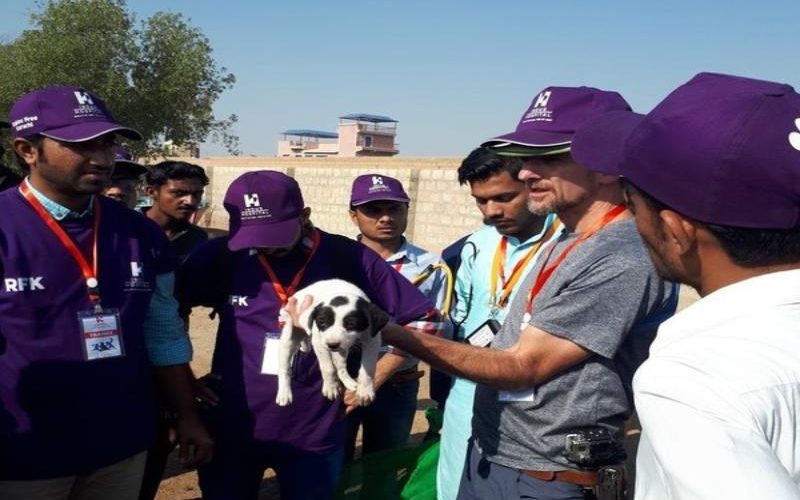THE INDUS HOSPITAL TRAINS LOCAL GOVERNMENT IN MASS VACCINATION AGAINST RABIES IN STREET DOGS
Karachi
In response to a recent local government directive to speed up the killing of street dogs and the outcry of the public over the notification, The Indus Hospital (TIH) appealed to the local government to allow our Rabies Free Pakistan Program to resume its dog vaccination and sterilization field activities in Karachi during the COVID-19 lockdown.
Since January 2018, the Rabies Free Pakistan Program: RFP (earlier called Rabies Free Karachi) has been vaccinating street dogs to create 70% herd immunity and break the rabies virus infection cycle. Our efforts are in line with the approach endorsed by WHO under the One Health approach. Dr. Naseem Salahuddin, Infectious Disease Consultant TIH, Karachi, and Member WHO Advisory Committee for Rabies, started the Rabies Prevention Center at TIH in 2008 where dog bite victims are treated with WHO recommended method of post exposure prophylaxis.
In 2018, she initiated the Rabies Free Pakistan project, whereby stray dogs would be vaccinated through Mass Dog vaccination (MDV), and sterilized through Animal Birth Control (ABC) measures, which would ultimately control rabies and also reduce the stray dog population. Scientifically, the control of human rabies is not by eliminating street dogs but by vaccinating them to create herd immunity. This simply means a vaccinated dog helps in breaking the chain of rabies infection between the rabies virus and humans. The more vaccinated dogs, the greater the barrier and eventually rabies would be eliminated because the virus cannot find an unvaccinated host.
It is the same concept in so many public health work where immunization is needed. Team members of Indus Hospital Research Center (IHRC) trained field workers for MDV and ABC, and we have, so far, vaccinated over 21,000 dogs against rabies and also sterilized over 3,000 dogs to reduce their population. RFP records GPS coordinates of every dog vaccination.
On April 7, 2020, under the chairmanship of the Secretary of the Local Government, Mr. Roshan Ali Shaikh, all DMCs and District Councils in Karachi were directed to attach their teams for training with the Indus Hospital and ACF Animal Rescue for ‘safe dog trapping and vaccination’ in areas RFP had not covered.




